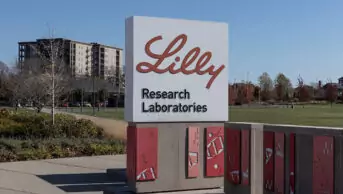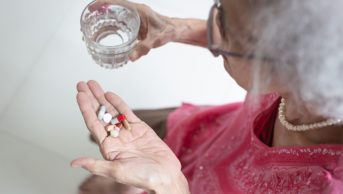
Shutterstock.com
Dementia is slowly reaching the top of government agendas globally, a move that has been long overdue. With the condition affecting 850,000 people in the UK alone and costing the UK economy £24bn a year[1]
, policymakers are waking up to the reality that dementia research needs the levels of investment that have underpinned progress in other disease areas. With an increasing move towards clinical dementia research and large-scale initiatives such as the Medical Research Council Dementias Platform UK — aiming to create the world’s largest population study for dementia research — there has never been a greater need for willing research volunteers.
In 2012, less than 4% of people with dementia participated in research, compared with around 20% in cancer[2]
. The lack of a nationally consistent system and significant variation in how well healthcare professionals engaged their patients with research opportunities were major barriers to initiating research studies. A poll by Alzheimer’s Research UK[3]
showed that, while 62% of the general public would be willing to take part in dementia research, 81% did not know how to volunteer.
In February 2015, the National Institute of Health Research (NIHR), along with Alzheimer’s Research UK, Alzheimer’s Society and Alzheimer Scotland, launched Join Dementia Research. This online and telephone system allows people with and without dementia to register their interest in volunteering for studies across the UK. Since its launch, more than 10,000 people have signed up and 51 research studies are currently recruiting, from commercial drug trials to genetic studies and projects improving the quality of care. Over the past year, NIHR reported a 60% increase in the number of people taking part in dementia research, illustrating a strong public appetite to be part of the movement to tackle dementia[4]
.
Around 80% of people signed up to Join Dementia Research are healthy volunteers, often spouses or friends of those affected. They play an incredibly important role in helping research teams to understand healthy ageing, as well as unravelling the risk factors for dementia. With research showing that brain changes associated with diseases like Alzheimer’s can start 10–15 years before symptoms are apparent, studying healthy people in their 50s and 60s could help reveal some of the earliest tell-tale manifestations of the disease. In addition, large cohort studies like the UK BioBank rely on healthy volunteers to help scientists track health from mid to late life, revealing crucial insights into the diseases that cause dementia.
The success of initiatives like Join Dementia Research depends on the smooth integration of research opportunities into the normal dementia care pathway. It is also crucial to engage health professionals with the importance of research and how to discuss volunteering opportunities with the public. Pharmacists have an important role to play in fostering this dialogue.
Eric Karran is director of research at Alzheimer’s Research UK. Alzheimer’s Research UK provides information about dementia and support to people interested in volunteering for research at www.alzheimersresearchuk.org or through their Dementia Research Infoline on 0300 111 5 111.
References
[1] Lewis F, Karlsberg Schaffer S, Sussex J et al. The trajectory of dementia in the UK – making a difference. Office of Health Economics; 2014.
[2] Department of Health. Prime Minister’s challenge on dementia. Delivering major improvements in care and research by 2015.
[3] YouGov Plc. Survey commissioned by Alzheimer’s Research UK. Total sample size was 2,227 adults and fieldwork was undertaken between 29–30 January 2015.
[4] National Institute for Health Research. 60% rise in people taking part in dementia research.


